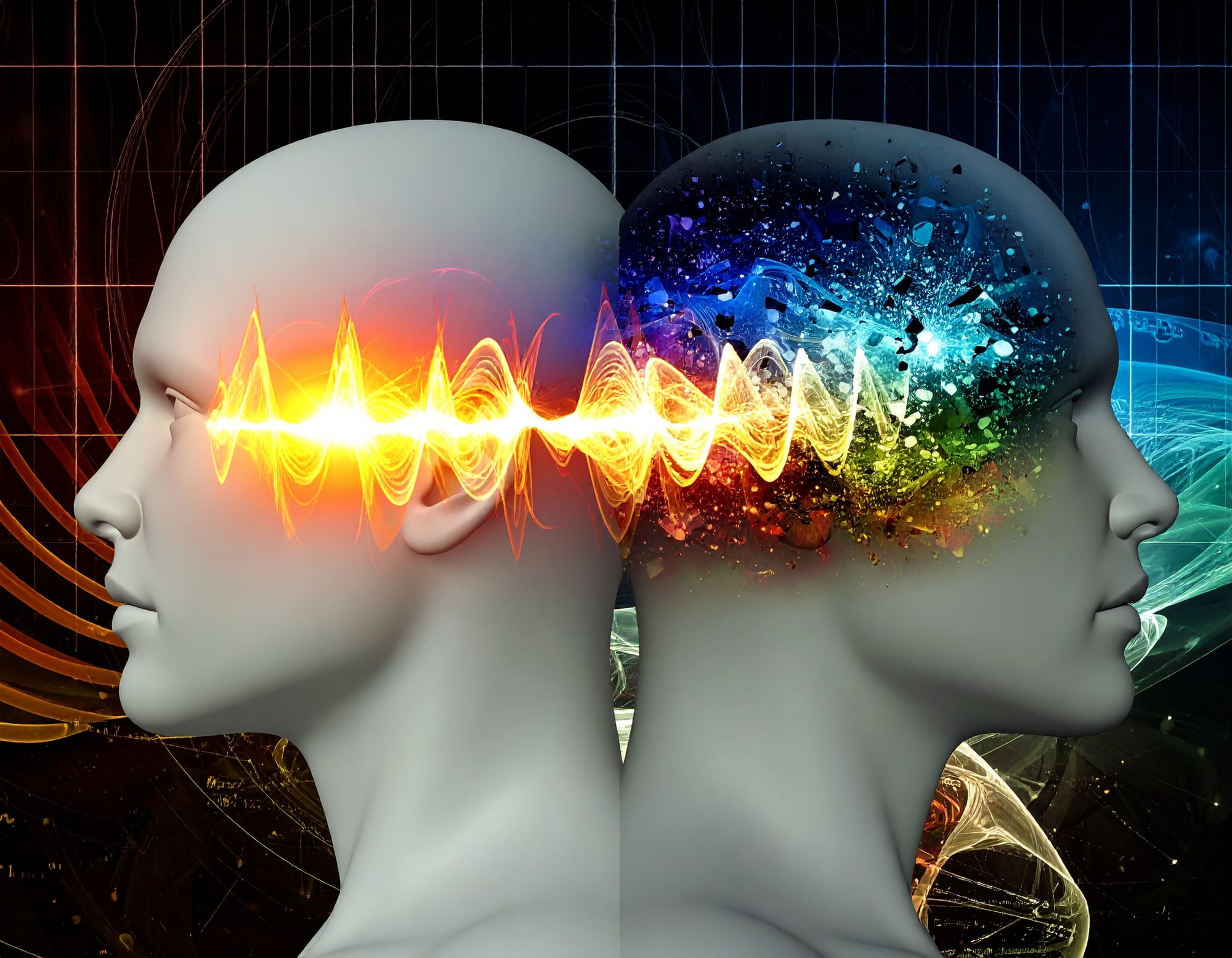Exploring the Intersection Between Sex Addiction and Sociopathy in Relationships
When relationships cause us to question the intentions and behaviors of those we love, it can feel like searching for clarity in a dense, shadowy forest. Human behavior is complex, and certain patterns often blur the lines between emotional wounds, addiction, and deeper psychological traits. Those entangled in cycles of deceit, manipulation, or compulsive betrayal may find clarity by understanding the intersection between sex addiction and sociopathy (antisocial personality disorder). This guide unpacks the differences and overlaps between these conditions, leveraging the latest research to illuminate pathways to awareness and healing.
What Is Sex Addiction?
Sex addiction, described in clinical terms as compulsive sexual behavior (CSB), is a condition where individuals struggle to control their sexual urges despite significant negative consequences. People facing this condition often experience persistent intrusive sexual thoughts and develop a pattern of acting on sexual impulses to cope with stress, anxiety, or inner emptiness. However, this cycle of compulsion often leads to feelings of guilt, shame, and personal turmoil.
According to a 2022 study published in the Journal of Psychosexual Health, 8.6% of the U.S. population shows symptoms aligning with compulsive sexual behavior. Researchers highlight that gender disparities exist, with men often reporting a higher prevalence of behaviors like frequent pornography use or casual sex, while women with CSB may focus more on hyper-fixated emotional connections (Hurlbert, Apt, & White, 1992).
From a neurobiological perspective, CSB may stem from imbalances in dopamine and serotonin systems, similar to other impulse-control disorders. Studies have linked CSB with significant emotional distress or adverse childhood events, such as abuse or neglect (Chatzittofis et al., 2017).
Behavioral Markers of Sex Addiction
- Obsessive sexual thoughts occurring several times daily.
- Unsuccessful attempts to curb these thoughts or behaviors.
- Frequent use of sexual activities as a strategy to numb emotional pain.
- Repeated indulgence in risky sexual behaviors despite consequences.
What Is Sociopathy?
Sociopathy, clinically referred to as antisocial personality disorder (APD), is characterized by patterns of manipulation, deceit, and a chronic disregard for rules or the well-being of others. Unlike those experiencing CSB, individuals with sociopathy often lack emotional empathy and remorse, approaching interpersonal dynamics as opportunities to exert control or power.
While traditionally considered a set of personality traits, APD includes behavioral markers like impulsivity, aggression, and irresponsibility. A meta-analysis featured in Psychiatry Quarterly estimates that while sociopathy impacts only about 1% of the general population, this figure increases significantly among incarcerated individuals, ranging from 15% to 25% (Hare, 2003).
Behavioral Clues for Sociopathy
- Manipulative charm to mask underlying intentions.
- Risk-taking behaviors, often to assert dominance or seek thrill.
- Lack of accountability for their actions and the harm they cause to others.
- Resistance to introspection or treatment due to a lack of remorse.

Overlapping Traits Between Sex Addiction and Sociopathy
Although sex addiction and sociopathy are fundamentally different conditions, those struggling with these problems can exhibit overlapping behaviors. This overlap can complicate relationships when trust is continually eroded by betrayal, manipulation, or emotional absenteeism.
Here are some shared traits often misunderstood in the context of relationships:
1. Impulsivity and Risky Behavior
Both conditions are associated with impulsive behaviors like frequent or unprotected sex with multiple partners, leading to physical or emotional consequences. Studies conducted by Heng Choon (Oliver) Chan and colleagues reveal that individuals with psychopathic traits often pursue reckless sexual behavior as a way to satisfy thrill-seeking tendencies (Chan et al., 2024). However, for individuals with sex addiction, these same behaviors are often self-soothing mechanisms triggered by anxiety or loneliness rather than calculated acts of manipulation.
2. Mash-Up of Emotional Detachment
Both sociopaths and sex addicts can appear emotionally distant. However, their reasons differ. Sociopaths lack the capacity for empathy, while sex addicts may deeply long for connection but sabotage relationships due to compulsive behaviors that perpetuate guilt and shame (Sansone et al., 2011).
3. Damage to Relationships
A prevalent theme in both conditions is failing to maintain healthy, meaningful relationships. Individuals with sociopathy may use relationships purely as tools for control or manipulation, whereas sex addicts may unintentionally harm loved ones through repeated breaches of trust.
Key Differences Between Sex Addiction and Sociopathy
For those wondering if their partner's actions stem from sex addiction, sociopathy, or other complex issues, it helps to identify critical differences in behavior, underlying motivation, and treatment receptiveness.
Empathy and Emotional Tone
Sex addicts often carry profound feelings of guilt and shame after acting out their compulsions, indicative of an intact sense of morality and empathy. Sociopaths rarely display genuine remorse, viewing others as disposable resources to satisfy their objectives.
Underlying Drivers of Behavior
The behaviors associated with sociopathy are usually calculated, serving purposes of control or power. By contrast, CSB often emerges from unregulated emotional distress or past trauma. An individual with CSB using sexual behavior as a patch for psychological pain differs fundamentally from the sociopath exploiting intimacy for manipulation.
Differing Treatment Responses
Success rates for treatment are drastically different between these conditions. Sex addiction often responds well to behavioral therapies like cognitive-behavioral therapy (CBT) and group support structures such as Sex Addicts Anonymous (SAA). Research has found that individuals with less severe CSB symptoms can experience recovery through structured interventions that reframe emotional coping mechanisms (Codispoti, 2008). Sociopaths, given their lack of remorse or self-critical awareness, typically show poor adherence to treatment programs.
The Scientific Evidence and Emerging Insights
Risky Sexual Behavior and Personality
Sociopathy has been closely associated with high-risk sexual behaviors (RSBs). A late-2023 study published by Amanda M. Cook in Criminal Justice and Behavior analyzed psychopathic traits in incarcerated individuals. It found a strong correlation between antisocial tendencies and risky activities such as unprotected or intoxicated sexual encounters. Individuals scoring high on lifestyle-oriented psychopathy showed heightened impulsivity in their sexual decisions (Cook et al., 2023).
Personality Disorders and CSB Co-Morbidity
Borderline personality disorder (BPD), another personality disorder marked by impulsive behavior and intense emotions, has some symptom overlap with CSB. According to Sansone et al., individuals diagnosed with BPD exhibited increased rates of promiscuity, sexual dissatisfaction, and even coercive roles in sexual relationships, underscoring impulsivity as a shared characteristic (Sansone & Wiederman, 2009).
Neural Mechanisms Behind Pathologies
Neuroimaging research indicates differences in brain activity. Those with CSB exhibit hyperactivity in the ventral striatum and amygdala when exposed to erotic stimuli, suggesting abnormal reward processing. Comparatively, individuals with sociopathic traits reveal deficient connectivity in areas responsible for empathy and impulse control, such as the prefrontal cortex (Voon et al., 2014).
What Can You Do For Yourself or a Loved One?
Navigating the complexity of sex addiction or sociopathy can take a toll on emotional well-being. If you're suspecting these patterns in a loved one's behavior, here are some initial steps:
- Self-Reflection:
Ask key questions to discern the motivations behind their actions:- Do they show genuine remorse and capacity for guilt?
- Are their actions more impulsive or manipulative?
- Encourage Professional Support:
Licensed therapists specializing in addiction or personality disorders can offer tailored interventions. - Set Boundaries and Protect Your Well-Being:
Whether or not they pursue treatment, prioritize clear boundaries. Your emotional and physical safety comes first. - Educate Yourself:
Explore resources on compulsive sexual behavior or personality disorders to better understand the framework behind these conditions.

Conclusions and the Road Ahead
Both sex addiction and sociopathy carry heavy implications for individuals and their relationships. By understanding these conditions and their shared but distinct characteristics, we can build compassion without enabling harmful patterns. Awareness bridges the gap between suffering and recovery, making it the first step toward meaningful change. Whether through therapy, education, or support networks, help is available for those willing to take the leap. Healing begins with clarity and the willingness to confront the emotional labyrinth.
To support these claims, continue exploring emerging studies about human behavior, including ongoing work in neurobiology, psychotherapy, and social dynamics. Education is empowerment. Are you ready for that first step toward understanding?

















